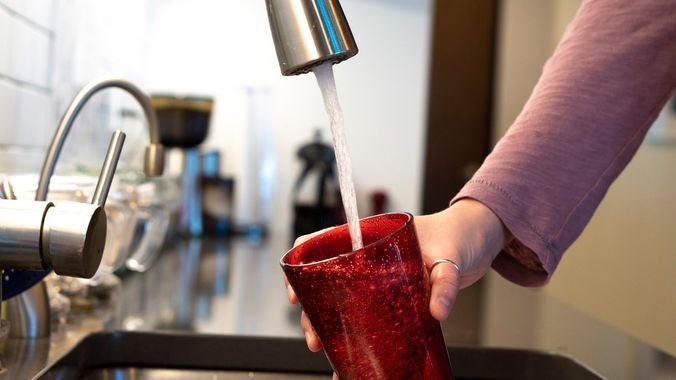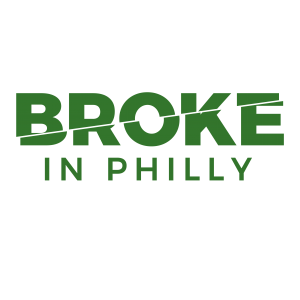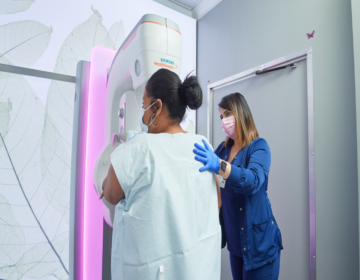Fear of Schuylkill Punch: Residents with lower incomes spend more on water, survey finds
The Water Department also found notable disparities in race and education level.

(Danya Henninger / Billy Penn)
Lately, Marangeli Mejia-Rabell has been trying to get her partner to drink more from the tap. It’s been an uphill battle, since he doesn’t trust the government to actually clean up Philly’s dirty river water.
“He says, ‘You can have the Schuylkill juice. I’m not having that,’” Mejia-Rabell said.
Mejia-Rabell is director of community economic development at the North Philly’s Village of Arts and Humanities, where she runs into fear of municipal water all the time. Most of her clients, she said, always drink bottled water instead.
She’s excited about a new Philadelphia Water Department program that could help sway her neighbors to drink more tap — and ultimately save a bunch of money.
Despite the unfortunate nickname, “Schuylkill Punch” has been proven plenty safe to drink, but the myth that it’s not has an unfortunate effect. In the poorest big city in the country, many people are unnecessarily spending their money on more expensive water. And Water Dept. surveys sent out this spring showed the phenomenon touches specific groups of people more than others.
People of color, people with lower incomes and people with lower levels of education were all found to drink bottled water more and tap water less.
PWD distributed the questionnaire citywide. It was physically mailed to every bill-payer in the city, and an online version was promoted on social media, in newsletters, via email and by phone. More than 3,000 residents from every zip code in the city completed the survey. Department officials were distraught by what they found.
“A lot of the customers that really should be using tap water most — in the sense of what they can afford — are the customers who do not,” said Joanne Dahme, PWD’s general manager of public affairs. “We’re trying to get to the bottom of that.”
Taste, convenience… and distrust of government
Dahme insists that Philly’s water quality is up to par: “We do hundreds of tests a month, we look for all kinds of elements that we’re required to look for,” she said. “We’ve never had a problem. Our record is untainted.”
So why don’t Philadelphia residents trust city water? PWD surveys show there isn’t just one reason.
The most common reason Philadelphians reported they prefer bottled water is the taste — 53 percent of respondents said that’s why they avoid drinking from the tap. Convenience was another reason given. Then there were the safety concerns.
A large number of residents responded that they’re concerned about the quality of Philly’s water supply, and the city pipes that carry it into their homes. Following those reasons, 17 percent of people cited what happened in Flint, Michigan as reason for their distrust.
“That probably did not help,” Dahme acknowledged. “It created this distrust of government.”
A free water bar to build trust
The results of the survey weren’t all pessimistic. People reporting they don’t drink tap water seem to be willing to reconsider: 53 percent of respondents said they’d drink tap water if they knew for sure it was safe.
So the Water Dept. is mobilizing to make it happen. PWD is planning a bunch of programming to educate Philly residents on water quality and safety. To combat government distrust, the plan is to partner with organizations people already feel comfortable with, such as groups like the Village of Arts and Humanities and Asociación Puertorriqueños en Marcha. There will also be an ambassador program, where community leaders will work to educate their neighbors. And stay tuned for a water-themed mural, which will be unveiled at 8th and Germantown in spring 2019.
Officials are also stealing an idea from the Midwest. In 2014, Minneapolis, Minnesota, set up a “water bar.”
“The concept is to build trust with people around water,” said Tiffany Ledesma, a PWD management specialist. “You have a place that looks like a bar, but they’re not serving anything but water and no money is being exchanged. You’re just sitting on a barstool talking to somebody about water.”
Mejia-Rabell is looking forward to that one, but she hasn’t been waiting for the official project launch. “We are not Flint,” Mejia-Rabell said she repeats to her neighbors. “I try to bring that back home.”
If you’re worried about your water
If you’re still worried about city water, there are a few measures you can take to ensure its quality.
For those who hate the taste of tap water: you’re not crazy. Dahme admits tap water tastes different depending on the time of year, but notes that it’s no indication of quality. She recommends buying a water filter to store in your refrigerator.
Flushing can also be a beneficial practice — especially if you’re living in an old house. Though the water itself is clean, there might be some lead in your pipes. Run the water for a few minutes before you drink it and that should rinse out anything unhealthy that was resting in your pipes.
“We take a lot of pride in our product, and we want people to feel good about our product,” Dahme said. “It’s not something to be scared of.”
 Billly Penn is one of 21 news organizations producing BROKE in Philly, a collaborative reporting project on economic justice. Read more at brokeinphilly.org or follow at @BrokeInPhilly.
Billly Penn is one of 21 news organizations producing BROKE in Philly, a collaborative reporting project on economic justice. Read more at brokeinphilly.org or follow at @BrokeInPhilly.
WHYY is your source for fact-based, in-depth journalism and information. As a nonprofit organization, we rely on financial support from readers like you. Please give today.




